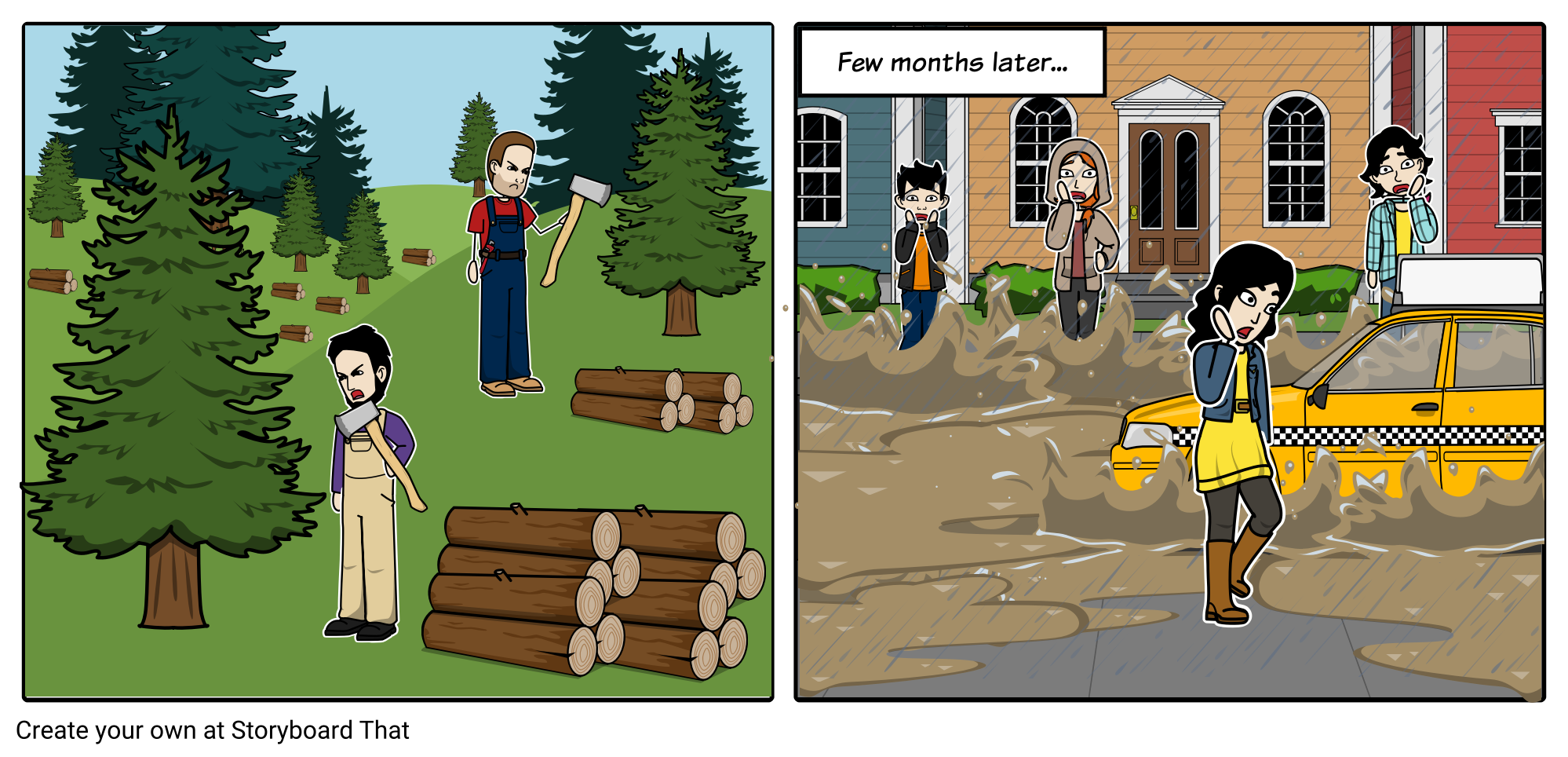LESSON GOAL
Let’s check our lesson goal.
In this material, you will learn the words and phrases related to environment.
In this material, you will learn the words and phrases related to environment.
この教材では、環境に関連した語彙や表現を使って話す練習をします。
PART A_1
Fill in the missing letters of the word to complete each sentence. Read the meaning aloud and use it as a clue.
PART A_2
| 1. word: |
G
L
_
B
_
L
W
_
R
M
_
N
G
|
| meaning: | [noun] increase of the Earth’s normal temperature |
| sentence: | _____________ makes the ice melt in North and South Poles. |
| 2. word: |
M
_
S
_
S
E
|
| meaning: | [verb] to use something wrongly/incorrectly |
| sentence | We should not __________ our natural resources. |
| 3. word: |
C
O
_
T
R
I
B
U
_
E
|
| meaning: | [verb] to give or share something with others |
| sentence: | They ___________ a lot of money to the environmental organization of their school. |
PART B_1
Let’s read the dialogue. I will play Ron and you will play Emma. Then, we’ll switch roles.
PART B_2
 I just bought a new air conditioner. Summer season is not here yet, but it is already hot. Are you considering to buy as well? |
Actually, I already have one at home, but I do not always use it. I prefer to use an electric fan at night and I take a bath two to three times a day to stay fresh. |
 I think I will feel more relaxed if I keep the air conditioner on especially at noon and at night. I guess I should also take a bath two to three times a day as you do. |
You can use your air conditioner at night. I heard that it contributes to global warming. It releases dangerous gasses in the air especially if it’s overused or misused. |
 Oh, you’re right. My Science teacher told us that air conditioners use too much electricity. I cannot afford to pay that high for my electricity bills. |
I’m glad you understand. You don’t just save money, you also help save the environment. However, if you feel “under the weather” due to the heat, you can use it until you’re relaxed. |
 Those are good points. As long as I can stand the heat, I will just use an electric fan. I want to help reduce the effects of global warming in my own way no matter how little it may be. Those are good points. As long as I can stand the heat, I will just use an electric fan. I want to help reduce the effects of global warming in my own way no matter how little it may be.
|
That’s really nice of you. Let’s hope that the others will also consider options like this. I’m sure they will understand. |
PART B_3
Please answer the questions in complete sentences.
PART B_4
| 1. | What did Ron buy? | |
| Answer: | ||
| 2. | How many times does Emma take a bath in a day? | |
| Answer: | ||
| 3. | Do you think Emma uses her air conditioner at night? | |
| Answer: | Yes/No, | |
| 4. | What does Emma mean by “feel under the weather”? | |
| Answer: |
PART C_1
Study the pictures for 1 minute. Tell a story based on the pictures.
PART C_2

PART D_1
Please answer the questions by stating your opinions.
PART D_2
| 1. | Some people say that we can live without the use of plastic. Do you agree or disagree? |
| Answer: | |
| 2. | Can you imagine what will happen when fossil fuel (coal and natural gas) runs out? |
| Answer: |
PART E_1
Let’s talk. Please answer my questions.
PART E_2
| 1. | Do you think newly discovered diseases are caused by environmental problems? |
| Answer: | |
| 2. | How does your country implement cleanliness and orderliness? |
| Answer: | |
| 3. | Do you think nuclear power is a safe source of electricity? Why or why not? |
| Answer: | |
| 4. | What roles can the government and businesses play in solving environmental problems? |
| Answer: | |
| 5. | What is the most stable source of energy? Is it solar energy, thermal, wind, etc.? |
| Answer: |
REVIEW AND FEEDBACK
Now, let us review the things that you learned in this lesson.
ではこのレッスンで学んだことを振り返りましょう。
(Please give a short feedback on how your student did on your class.)
| Grammar 文法 |
Pronunciation 発音 | Vocabulary 単語 |
Comprehension 理解 |
|
|---|---|---|---|---|
 GOOD GOOD |
文法の誤りはほとんどなく、完全な文章で話すことができる | ほとんどの単語をはっきりと正しく発音することができる | 習った表現を適切に使うことができる | 文章を理解し、質問に正しく答えることができる |
 FAIR |
文法の誤りはあるが、完全な文章で話すことができる | 発音の練習が必要な言葉がいくつかある | たまにミスはあるが、習った表現を適切に使うことができる | 文章を完全に理解するのは難しく、質問に正しく答えられないときもある |
 POOR |
文章で話すのは難しく、単語だけで話すことができる | 発音の練習が必要である | 習った単語と表現を少しだけ使うことができる | 文章を理解するのは難しく、質問に答えるのは難しい |
レッスン教材に関するアンケートのお願い
レッスン教材の改善・拡充を図ることを目的とし、アンケートを実施しております。
以下のURLからアンケートにお答えいただき、 ご意見・ご要望をお聞かせください。
アンケートはこちら